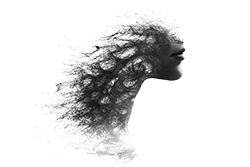The Bible is one of the most widely read and influential books in human history. However, the number of books in the Bible can vary depending on the religious tradition. Different Christian denominations, including Catholic, Protestant, and Orthodox churches, follow distinct canons of Scripture. In this article, we’ll explore how many books are in the Bible, the structure of the Old and New Testaments, and why these differences exist.
How Many Books Are in the Bible?
The number of books in the Bible varies across Christian traditions:
- Protestant Bible: 66 books
- Catholic Bible: 73 books
- Eastern Orthodox Bible: 76 or more books, depending on the specific tradition
These differences arise primarily from variations in the Old Testament canon.
Structure of the Bible
The Bible is divided into two main sections:
- Old Testament
- Focuses on the creation of the world, the history of Israel, and God’s covenant with His people.
- Includes books of law, history, poetry, and prophecy.
- New Testament
- Centers on the life, teachings, death, and resurrection of Jesus Christ.
- Includes the Gospels, letters (epistles), and prophetic texts like Revelation.
Books of the Protestant Bible (66 Books)
The Protestant Bible contains 66 books, divided as follows:
Old Testament (39 Books)
- Books of the Law (Pentateuch):
- Genesis
- Exodus
- Leviticus
- Numbers
- Deuteronomy
- Historical Books:
6. Joshua
7. Judges
8. Ruth
9. 1 Samuel
10. 2 Samuel
11. 1 Kings
12. 2 Kings
13. 1 Chronicles
14. 2 Chronicles
15. Ezra
16. Nehemiah
17. Esther - Wisdom and Poetry:
18. Job
19. Psalms
20. Proverbs
21. Ecclesiastes
22. Song of Solomon - Major Prophets:
23. Isaiah
24. Jeremiah
25. Lamentations
26. Ezekiel
27. Daniel - Minor Prophets:
28. Hosea
29. Joel
30. Amos
31. Obadiah
32. Jonah
33. Micah
34. Nahum
35. Habakkuk
36. Zephaniah
37. Haggai
38. Zechariah
39. Malachi
New Testament (27 Books)
- Gospels:
- Matthew
- Mark
- Luke
- John
- History:
5. Acts of the Apostles - Pauline Epistles:
6. Romans
7. 1 Corinthians
8. 2 Corinthians
9. Galatians
10. Ephesians
11. Philippians
12. Colossians
13. 1 Thessalonians
14. 2 Thessalonians
15. 1 Timothy
16. 2 Timothy
17. Titus
18. Philemon - General Epistles:
19. Hebrews
20. James
21. 1 Peter
22. 2 Peter
23. 1 John
24. 2 John
25. 3 John
26. Jude - Prophecy:
27. Revelation
Books of the Catholic Bible (73 Books)
The Catholic Bible includes the 66 books of the Protestant Bible plus seven additional books in the Old Testament, known as the Deuterocanonical Books:
- Tobit
- Judith
- Wisdom of Solomon
- Sirach (Ecclesiasticus)
- Baruch
- 1 Maccabees
- 2 Maccabees
These books are included because they were part of the Septuagint (an ancient Greek translation of the Hebrew Scriptures), which early Christians used.
Books of the Eastern Orthodox Bible
The Eastern Orthodox Bible includes the 73 books of the Catholic Bible and additional texts such as:
- 1 Esdras
- 3 Maccabees
- Psalm 151
- Prayer of Manasseh
Different branches of the Orthodox Church may include other books as well, reflecting variations in their biblical canon.
Why Are There Differences in the Number of Books?
The differences in the number of books in the Bible stem from historical debates about which texts should be considered Scripture.
- Jewish Canon:
Jewish religious leaders finalised the Hebrew Bible (Tanakh) around the 1st century CE, excluding texts found in the Septuagint. - Christian Canon:
Early Christians used the Septuagint, which included additional books. However, during the Reformation, Protestant leaders chose to exclude these Deuterocanonical books, considering them non-canonical. - Catholic and Orthodox Views:
The Catholic Church reaffirmed the inclusion of the Deuterocanonical books at the Council of Trent in the 16th century. The Orthodox Church retained even more texts based on long-standing tradition.
Frequently Asked Questions (FAQs)
Q: How many books are in the Bible according to Protestant traditions?
A: The Protestant Bible contains 66 books—39 in the Old Testament and 27 in the New Testament.
Q: Why does the Catholic Bible have more books?
A: The Catholic Bible includes seven additional Old Testament books (the Deuterocanonical books) that were part of the Septuagint, an ancient Greek version of the Scriptures.
Q: What are the Deuterocanonical books?
A: The Deuterocanonical books are Tobit, Judith, Wisdom of Solomon, Sirach, Baruch, and 1 & 2 Maccabees. These books are included in Catholic and Orthodox Bibles but not in the Protestant Bible.
Q: Are there other versions of the Bible with more books?
A: Yes, the Eastern Orthodox Bible includes additional texts, such as 1 Esdras, 3 Maccabees, and Psalm 151.
Final Thoughts
The Bible’s structure and number of books vary across Christian traditions due to historical and theological differences. While the Protestant Bible contains 66 books, the Catholic Bible includes 73, and the Orthodox Bible has even more. Understanding these variations can deepen your appreciation for the rich history and diversity of Christian Scripture. Regardless of the tradition you follow, the Bible remains a foundational text that has shaped religious thought and practice for millennia.

















Leave a Reply